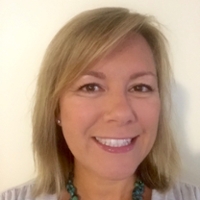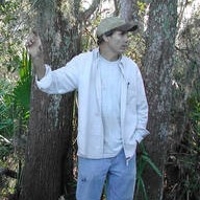Heca Utimile (Our Land): An Indigenous History of Northeast Florida
"Heca Utimile (Our Land)" is a project that aims to decolonialize local Indigenous history and tackle pervasive myths that position the Mocama (local Timucuas), Guale, and Yamasee peoples as irrelevant to local history, or merely the prequel to the real story.
Student have developed DH modules in five major chronological/thematic groups that collectively offer a rich overview of the deep Indigenous history of our region from 10,000 years ago to the mid-seventeenth century. Additional modules will examine local Indigenous history from the 1660s-1702 (when the Yamasees and then Guales moved into our region), Indigenous survival after 1702 (when refugees of a massive assault emigrated out of our area), and the local Mocama community of Sarabay. The research and emerging scholarship are being converted to a public, digital audience through digital mapping and story-telling, including the creation of an alternative Indigenous walking tour of Fort Caroline. The project will be published online in summer 2022.
Faculty Project Leaders
 Dr. Denise I. Bossy specializes in cross-cultural relations between Indians, Europeans, and Africans in the early South. She offers upper-division courses on the history of early America, Florida, American Indians, and seminars on Southeastern Indians, gender and race, family and community, comparative slaveries, and U.S. Readings I. Her current research focuses on the Yamasee Indians of Florida, Georgia, and South Carolina.
Dr. Denise I. Bossy specializes in cross-cultural relations between Indians, Europeans, and Africans in the early South. She offers upper-division courses on the history of early America, Florida, American Indians, and seminars on Southeastern Indians, gender and race, family and community, comparative slaveries, and U.S. Readings I. Her current research focuses on the Yamasee Indians of Florida, Georgia, and South Carolina.
 Dr. Keith Ashley is an Assistant Professor of Anthropology. Over the past 20 years, he has been involved in archaeological excavation and research throughout the southeastern U.S. Field projects have ranged from 4000 year old shell middens along the Atlantic coast to 17th century Creek Indian villages in central Alabama. His current research focuses on the archaeology of Native Americans in northeastern Florida before and after European contact.
Dr. Keith Ashley is an Assistant Professor of Anthropology. Over the past 20 years, he has been involved in archaeological excavation and research throughout the southeastern U.S. Field projects have ranged from 4000 year old shell middens along the Atlantic coast to 17th century Creek Indian villages in central Alabama. His current research focuses on the archaeology of Native Americans in northeastern Florida before and after European contact.
